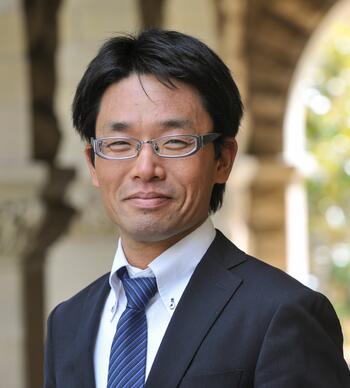Stories in a Time of Pandemic: APARC Alumni Share Their Experiences
Stories in a Time of Pandemic: APARC Alumni Share Their Experiences
We've asked some of our former scholars how COVID-19 is changing life in the many places around the world they call home.

WATARU FUKUDA
Chief Representative of the Shizuoka Prefectural Government in Singapore
Global Affiliates Program Fellow, 2014-16

TSUYOSHI KOSHIKAWA
Chief Advisor, Japan International Cooperation Agency Expert for the Ministry of Planning, Finance, and Industry in Myanmar
Global Affiliates Program Fellow, 2014-15
 I currently live in Naypyitaw, Myanmar, though I am originally from Japan. Naypyitaw is currently not under shelter-in-place, though the city of Yangon is. In Naypyitaw, restaurants are serving only take-out meals, and most amusement facilities like movie theaters, karaoke boxes, bars, and beauty salons have been closed. There are still a few big department stores open, as well as the public golf course and tennis courts.
I currently live in Naypyitaw, Myanmar, though I am originally from Japan. Naypyitaw is currently not under shelter-in-place, though the city of Yangon is. In Naypyitaw, restaurants are serving only take-out meals, and most amusement facilities like movie theaters, karaoke boxes, bars, and beauty salons have been closed. There are still a few big department stores open, as well as the public golf course and tennis courts.
At the time of this writing, the number of known COVID-19 cases in Myanmar is nearly 150, and I am worried about the potential risks because the healthcare and medical information systems here are not as organized as in countries like Japan, the UK, or the United States.
Anyone with a fever of 37.5 degrees C (99.5 F) or higher is being kept from entering Yangon. The Ministry of Health is taking all traveler’s temperatures at the airport, railways stations, and the exits of all highway interchanges throughout Yangon. Foreigners with a fever of 38 degrees C (100.4 F) have been told that they will not be permitted into private hospitals anywhere in Myanmar at present. Isolation wards in general hospitals will accommodate foreigners. The situation is frightening, but with frequent handwashing and hygiene, we are trying to take care of each other.
XIAOYUAN SHI
Deputy General Manager in the Internal Audit Bureau at the Industrial and Commercial Bank of China
Global Affiliates Program Fellow, 2012-13

Thankfully, our efforts have worked. The new confirmed cases are mostly coming in from foreign travel. Big cities like Beijing and Shanghai have low infection rates, and people feel much less stressed. Social life, work, and production are recovering, and the lockdown of Wuhan City has been lifted. Most schools will continue to use online classes for the time being and restaurants are still not fully open, but I think the most difficult time is behind us.
It’s impossible to spot all of the potential virus carriers, and therefore precautionary measures like avoiding going out unnecessarily, wearing masks in public, and handwashing are still recommended. I’ve not heard of COVID-19 cases or deaths among my acquaintances, thankfully, but the conditions here have proven that this virus is highly infectious and death is possible. I hope our practices here can provide some references for other places where it is spreading.



